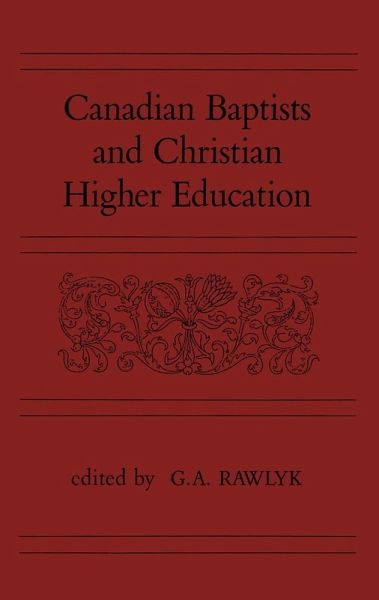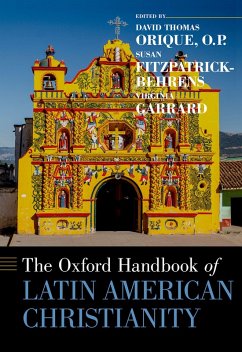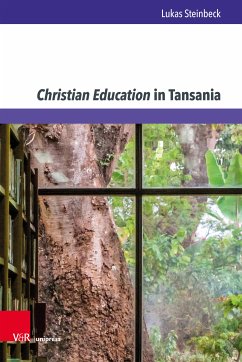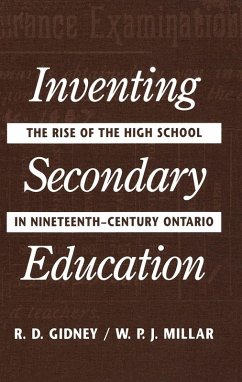
Canadian Baptists and Christian Higher Education (eBook, PDF)

PAYBACK Punkte
31 °P sammeln!
In his chapter on Acadia, Barry Moody argues that the university has been surprisingly open to a variety of theologies and pedagogical perspectives, tracing this to the liberality and breadth of vision of Nova Scotia Baptists. His study helps explain the remarkable strength of the Baptist tradition in late nineteenth-century Nova Scotia. J.R.C. Perkin''s chapter on one of Acadia''s distinguished presidents, Watson Kirkonnell, shows Kirkonnell as representative of this tradition and its strength. G.A. Rawlyk examines some of the underlying forces which significantly affected the development of ...
In his chapter on Acadia, Barry Moody argues that the university has been surprisingly open to a variety of theologies and pedagogical perspectives, tracing this to the liberality and breadth of vision of Nova Scotia Baptists. His study helps explain the remarkable strength of the Baptist tradition in late nineteenth-century Nova Scotia. J.R.C. Perkin''s chapter on one of Acadia''s distinguished presidents, Watson Kirkonnell, shows Kirkonnell as representative of this tradition and its strength. G.A. Rawlyk examines some of the underlying forces which significantly affected the development of McMaster University. He suggests that the cutting edge of McMaster''s nineteenth century Evangelicalism may have been dulled by the enthusiastic manner in which "consumerism" and "modernity" were appropriated by the Baptist Convention leadership which controlled the university. In his discussion of Brandon College, Walter Ellis argues that Brandon failed as a Baptist institution of higher learning largely because it was out of touch with Western Canadian realities. If it had been a bible college rather than a Manitoba variant of McMaster, Brandon might still be in existence and Conventional Baptists might as a result be a far stronger force in the West. These essays on individual institutions highlight the pressure on denominational universities to emphasize not only Christian spirituality but secular scholarship. They will be of interest to all those who are concerned not only with the fate of Baptist institutions but the entire Christian church in Canada.
Dieser Download kann aus rechtlichen Gründen nur mit Rechnungsadresse in A, B, BG, CY, CZ, D, DK, EW, E, FIN, F, GR, HR, H, IRL, I, LT, L, LR, M, NL, PL, P, R, S, SLO, SK ausgeliefert werden.













